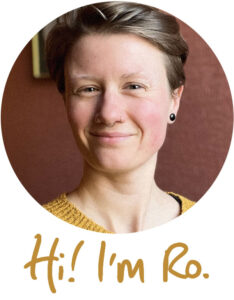How To Overcome Jealousy

In my experience of open relationships, jealousy often stems from comparison. Do you find that you compare yourself with your partners’ exes, other lovers, or even their friends? Does it bring up a feeling of competitiveness, fears of not being enough, and maybe even of being abandoned?
If so, I have something that might help.
(And this applies to monogamous folks too – jealousy is definitely not an issue that only crops up in polyamorous relationships.)
The first thing to know is that comparing is a very human thing to do. It’s how we understand who we are and make sense of the world, by being able to identify the similarities and differences between ourselves and others. It’s not necessarily a bad thing… it actually comes in kinda useful a lot of the time.
It’s what we do with comparison that matters.
There are two ways it can go:
OPTION 1: You compare, and it triggers a competitive response. You see yourself as either inferior or superior, judge accordingly, and tell yourself all the reasons why you’re not good enough, why you don’t measure up. You assume that your partner must be drawing the same conclusions and, of course, will leave you. (Sound familiar? It might be that there’s a triggered response happening here too.)
OPTION 2: You compare, and in noticing the other person’s differences, you get curious. Instead of making assumptions, you ask questions. You feel motivated to learn more about what’s going on with your partner, and the other person they want to spend time with – from a place of curiosity rather than suspicion. This opens a doorway to compassion and connection.
I’d like to talk a bit more about this, from my personal experience:
I’ve been exploring open relationships for a few years, but it’s only been more recently that the kind of insecurity that I associate with jealousy has started to creep in. I notice it most clearly when I know very little about my partner’s other connections – it’s so easy for my mind to fill in the blanks with the ‘worst case’ scenario.
In my imagination, they are having a far more enjoyable time than I ever have with him! This mystery Other Woman is more attractive, more fun. And of course, she’d love to take my partner away from me.
(Eugh, it feels weird typing that out.)
It’s at this point that I can stop myself and notice that I’m making a whole load of assumptions and telling myself all knids of stories!
This is when I can start asking questions.
What’s their connection really like? Does she have other relationships too? What gifts does their relationship give him? What gifts does their relationship give me?
(It can be helpful to explicitly ask for reassurance here if you need it, too – I still often do.)
Now, there’s a balance to be found, because on the one hand I definitely don’t want to hear about every detail of what goes on between my partner and the other people he shares intimacy with. And he has a right to privacy too. But starting to talk openly about the love shared between my partner and the other people in his life helps me feel more connected – both to him, and to the other people he shares that love with.
And this is how being curious can shift me away from feeling competitive, and towards feeling compassionate.
If your default pattern is to compare and compete, know that this is likely something you’ve learned to protect yourself from the kind of connection that can feel really vulnerable. And that’s ok.
It takes a lot of security in yourself to be able to hold the comparison, the curiosity, and the compassion. If it was easy, we’d all be there from the start.
But noticing when you start to compete, and experimenting with asking more questions instead, is a great place to start.



